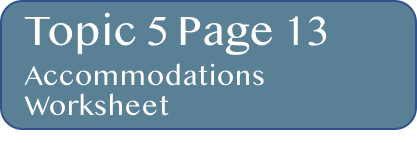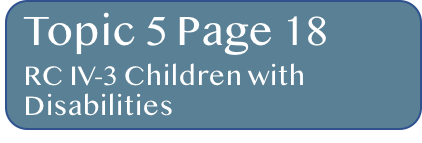Sentry Page Protection
Student Login Unit 4
Unit 4 Student Login
Welcome, (First Name)!
Enter Member Area
(Unit 4) Topic 5: Supporting Families with Special Needs
3 Clock Hours of Early Childhood Education






















